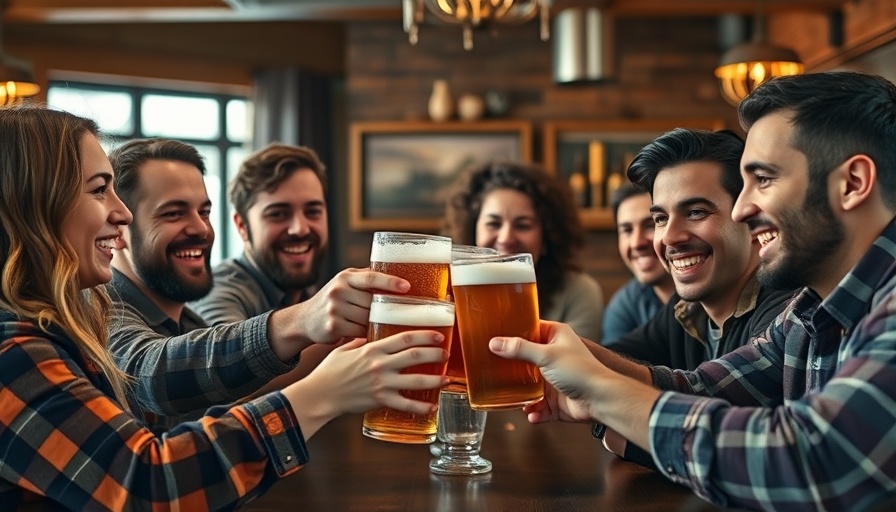
Understanding Hangovers: What Happens to Your Body?
After a night of celebration, many wake up to the unwelcome friends known as hangovers. Hangovers occur when your body reacts negatively to the consumption of alcohol, leading to symptoms such as dehydration, fatigue, and nausea. Understanding how alcohol affects your body can empower you to make better choices during social outings and minimize the aftermath.
Prevention: Tips to Celebrate Responsibly
It's ideal to prevent a hangover rather than deal with the consequences. Here are a few practical tips:
- Hydrate Before and During Alcohol Consumption: Drinking water in tandem with alcohol helps offset dehydration. Aim for a glass of water for every alcoholic beverage you consume.
- Choose Light-Colored Drinks: Darker spirits, such as whiskey and red wine, may lead to worse hangovers due to higher levels of congeners, a byproduct of fermentation.
- Eat a Balanced Meal: Ensure you have food in your stomach before drinking. Foods rich in carbohydrates, proteins, and fats can slow the absorption of alcohol.
Effective Recovery Methods: Kip, Help Your Body Heal
If a hangover strikes, recovery begins with self-care. Here are some science-backed methods to ease your symptoms:
- Hydration is Key: Drink plenty of water or sports drinks to replenish lost electrolytes. Make herbal teas a part of your recovery as they can be gentle on your stomach.
- Rest and Relaxation: Your body needs sleep to recover. Take time to rest and allow your body to heal. A comfortable environment can help facilitate quality sleep.
- Incorporate Light Exercise: Gentle exercise like walking or yoga can promote circulation and help you feel better, but listen to your body and don’t overdo it.
Nutritional Strategies: Fuel Your Recovery
Loading up on the right nutrients can make a significant difference in how quickly you recover. Consider these foods and drinks:
- Bananas: They’re an excellent source of potassium, which is often depleted due to dehydration.
- Eggs: Rich in cysteine, they can help break down toxins created by alcohol.
- Ginger Tea: Soothe your stomach with ginger tea, known for its nausea-relieving properties.
Emotional and Mental Health Aspects
Hangovers aren't just physical. They can take a toll on your mental health, leaving you feeling down or anxious. Taking care of your mental wellness after a hangover is just as important:
- Practice Mindfulness: Engage in mindfulness techniques like deep breathing or meditation to help alleviate anxiety.
- Social Support: Talking to friends about your hangover or planning a light activity can uplift your spirits and create distractions from discomfort.
Conclusion: Finding Balance in Social Drinking
Celebrating with friends and enjoying social events is a vital part of life. However, it's essential to strike a balance between fun and self-care. By practicing responsible drinking habits, focusing on hydration, and incorporating recovery strategies, you can take charge of your health and well-being. Remember, every choice you make contributes to your journey of fitness and personal growth!
 Add Row
Add Row  Add
Add 




 Add Row
Add Row  Add
Add 

Write A Comment